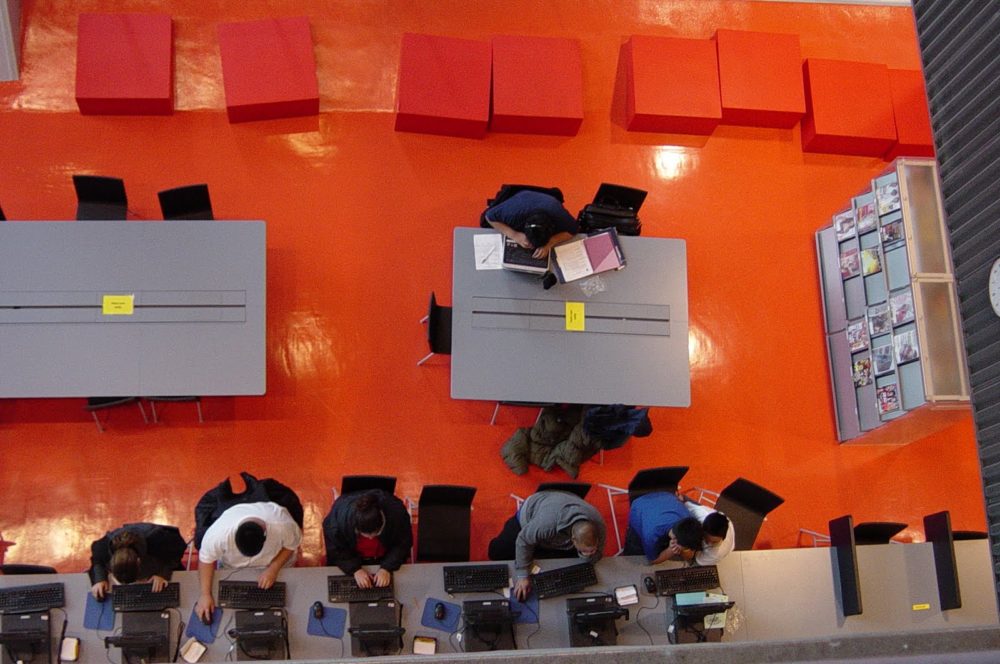International GCSE (IGCSE) Guide
Updated December 2016
The IGCSE, or International General Certificate of Secondary Education, is (usually) studied over a two-year period between Year 10 and Year 11 in English National Curriculum schools by students between the ages of 14 and 16 years. In some cases, particularly “bright” children can choose to study the IGCSE over 1 year.
The IGCSE is the international variant of the UK’s GCSE and was developed around 25 years ago, initially to meet the needs of students seeking a UK qualification, but for whom English was an Additional Language [EAL].
Today there are three distinct variants of GCSE: the UK GCSE, the UK IGCSE, and the IGCSE available in the UAE and other countries outside the United Kingdom.
The IGCSE available in the UAE and internationally is now fundamentally different to the GCSE and IGCSE offered to students in the UK.
The UK variants are graded numerically between 1 and 9 (9 representing an A** not available in the UAE IGCSE) and are awarded on the basis of examinations at the end of the two years. In the emirates, students receive letter grades between A* and G and the examinations are awarded based on a broad mix of coursework, examinations and other practical activities.
The IGCSE is the pre-cursor/foundation to students progressing to study International A Levels in the UAE’s English National curriculum schools.
United Kingdom of Great Britain and Northern Ireland
There are 2 examination boards who assess the IGCSE:
• Cambridge International Examinations[CIE];
• Pearson EDEXCEL
Studied over two years from age 14 and sat at age 16.
Choice of around 80 subjects, although most schools offer between 12 and 30 subject options.
Major options include English; Mathematics; Chemistry; Physics; Biology; Sociology; Geography; History; Media Studies; Psychology; Politics; ICT; Global Perspectives; Business Studies, Technology; Philosophy; Design, Music, Drama; combined/co-ordinated Science; and any number of modern and ancient languages.
Students sit on average for 8 subjects, although the exact number varies between schools and the ability of the child, to between around 6 and 13 subjects.
Notes:
1. The IGCSE is a different examination to both the GCSE and (in many cases) the UK variant of the IGCSE with different examination, curriculum and coursework requirements.
2. The UK is radically re-structuring and academically strengthening GCSE provision and children are currently sitting new GCSEs that are linear, not modular and assessed only on the basis of examinations at the end of a two-year period. The new examinations will be graded on a scale of 1 – 9, 9 representing an equivalent of an A** [double star] not available in standard IGCSEs.
3. Cambridge International have advised whichschooladvisor that “as it stands there has not been a decision to offer schools in the UAE the new 9 – 1 version of the IGCSE.” Current Emirates’ students at least will sit the old IGCSE based on A-G grades.
4. As the UK system of GCSE is in considerable flux, it is not possible to predict the knock-on impacts on IGCSEs in the emirates. As it stands, if IGCSEs do not change, the differences between UAE’s IGCSEs and UK GCSEs will increase, UK variants being significantly more difficult.
5. The UK educational system now requires students to sit a core of eight academic subjects in English Language, English Literature, Mathematics, Double or Triple Science, a language, History and/or Geography. This cluster of core subjects is known, informally, as the English Baccalaureate [EBacc]. It is anticipated that most schools in Dubai will move towards offering compulsory EBacc core subjects. Better schools will maintain further subject choices outside the core EBacc subjects.
Assessment takes place at the end of the course and can currently include written, oral, coursework and practical assessment according to subject.
Examinations occur twice in the final year, in June and November. Results are issued in August and January.
Currently the emirates is not liable to changes to UK IGCSEs that are becoming linear and assessed only by examinations at the end of the course.
Currently there is a good balance between rote based learning and analysis.
The UAE is not liable to changes in the UK that are seeing a shift to awarding GCSE qualifications solely on the basis of a student's achievement in examinations at the end of each GCSE course.
Many now argue that, as a result of the UKs removal of coursework as an element of grading, the UK is shifting back towards a rote-based emphasis in child learning.
The consensus is that IGCSEs have now become easier than their UK equivalent GCSEs because they include coursework and practical examinations in the total allocation of marking.
Prospective parents should note that not all universities will accept an IGCSE as a formally equivalent qualification to a UK GCSE. This is particularly the case with IGCSE English which is designed to recognise the challenges facing students who come to English as an Additional Language [EAL] and does not have parity with GCSE English.
IGCSE study is arguably best suited to academic children in all non-vocational subjects.
Extensive and wide ranging materials are available from both examining boards.
A* to G
To progress to GCE A Levels, most schools insist on a minimum A*-C in the subject to be studied and a minimum of 5 IGCSEs including English Language and Mathematics. In competitive schools these thresholds increase markedly.
Prospective parents should note that a UK GCSE is graded numerically from 1 - 9 and there is no agreed equivalence between numerical and letter gradings between the two different examinations.
Costs rise according to the school’s ability to offer a wider range of options. The cost of a good IGCSE education is generally higher than alternative curricular and comparable only to that of studying for the International Baccalaureate Middle Years Programme [IB MYP]
Because of its breadth and rigour, transfer from the English National Curriculum schools is arguably easier than trying to transfer into them. . However, age differences between curriculum based on schools with study to Year 12 may make transfer from English National Curriculum schools impractical.
For French and German transfer the fundamental decider will be linguistic competence in the host language.
The GCSE/IGCSE is the benchmark qualification for progressing to study the General Certificate of Education - Advanced Level [ GCE A’ Level] or International A Level
In the UK, the GCSE is also the basis for applying to enter into an apprenticeship or to vocational based further education including the BTEC.
Academic children and those students seeking to progress to International A Level study in English National Curriculum schools, and later, universities awarding British degrees, whether in the UK or UAE.
The IGCSE is also increasingly seen a better alternative to the International Baccalaureate Middle Years Programmme [IB MYP] in high performing schools offering an extended range of subject choices to students, particularly when those IGCSE choices include one or more languages.
High – arguably still one of few global benchmarks in education for progressing to further study.
Many employers will also still require applicants to have good (I)GCSE passes in at least English and Mathematics to be considered for any role in the United Kingdom or its overseas territories.
The (I)GCSE is considered to be at the level of the US High School Diploma; GCSEs are likely to be accepted in lieu of the US High School Diploma if they are scored at C or above in subjects with a High School Diploma counterpart.
Increasingly less valuable as employers look to International A Level and degrees to determine an applicant’s desirability for any role.
Students in England can no longer legally leave school to enter the work place directly with (I)GCSEs.
A high (I)GCSE grading in English and Mathematics, however, remains a fundamental requirement of most UK employers when considering applications for any role, even if the applicant has a degree.
Examination results at (I)GCSE are increasingly of value, outside being a means to access a post-16 education, only to employers offering apprenticeships to students who leave school at 16 in the United Kingdom, where the number and grades of (I)GCEs remain very significant.
In the UK, universities frequently pay no attention to (I)GCSE scoring and focus on performance at GCE A’ Level. In the UAE however many universities accept (I)GCSEs without International A Levels. This is not the norm.
• Huge breadth of subject choices in the best schools
• Subjects in some cases tailored to the needs of students with English as an Additional Language [EAL]
• Mix of course work and examinations benefit students of different abilities and skills
• Globally accepted secondary school qualifications with outstanding international recognition/perceived merit
• Subject choice enables children to specialise in subjects that interest them rather than being pressed into a range of subjects including those in which they are weak or have no interest
• International variants of the IGCSE are very different to UK counterpart qualifications with different grading and assessment
• In some subjects they are not treated with parity to UK counterparts, particularly in English
• Not all schools offer a broad range of subject choices, weakening a core strength of the IGCSE as a qualification able to meet the needs of individual children
• Some still argue that coursework should not be included in the assessment of IGCSE as it lends itself to abuse and waters down the academic value of study
• In schools not offering students a broad choice of IGCSEs, particularly in Humanities and languages, the International Baccalaureate Diploma as a post-16 option may be put out of reach









































































Nice Information, thank you for information